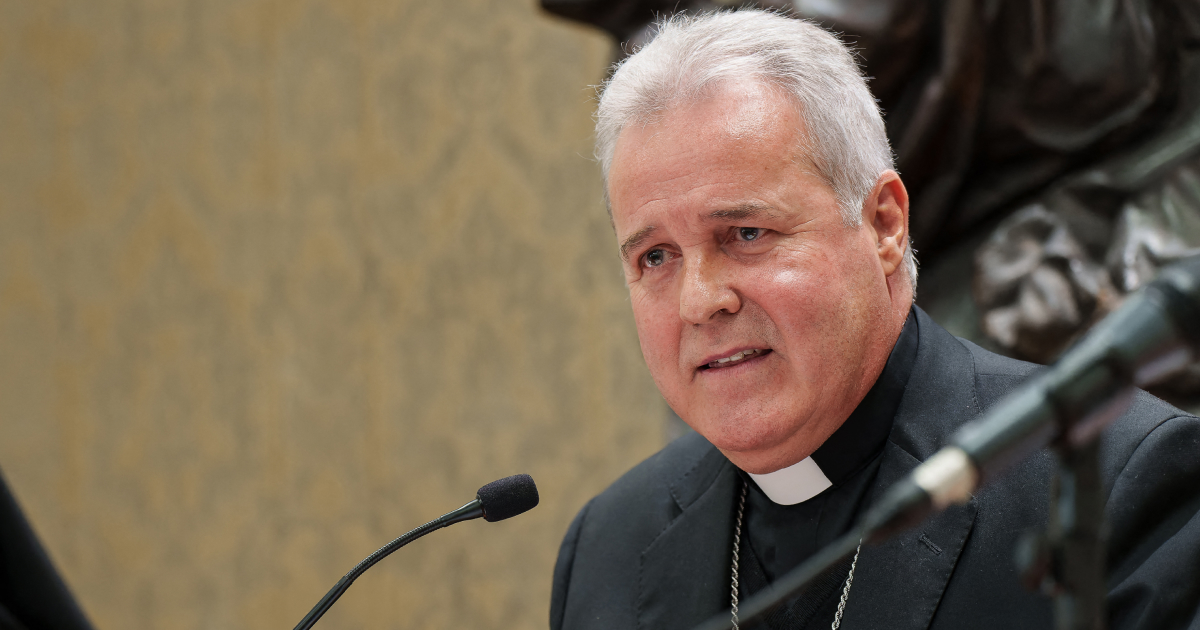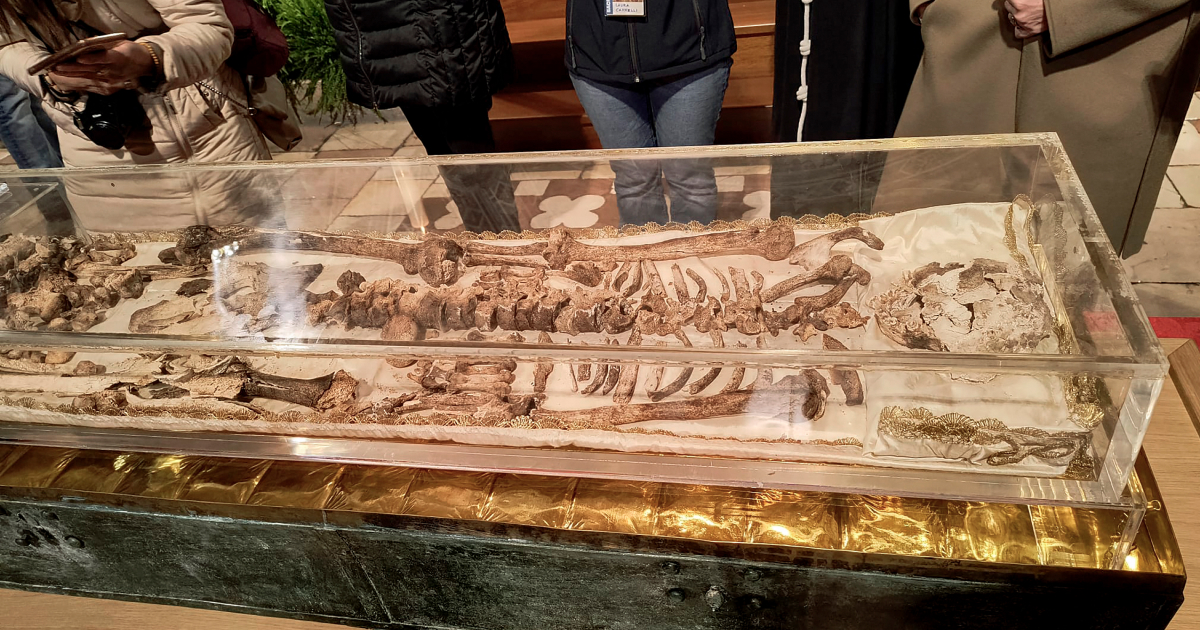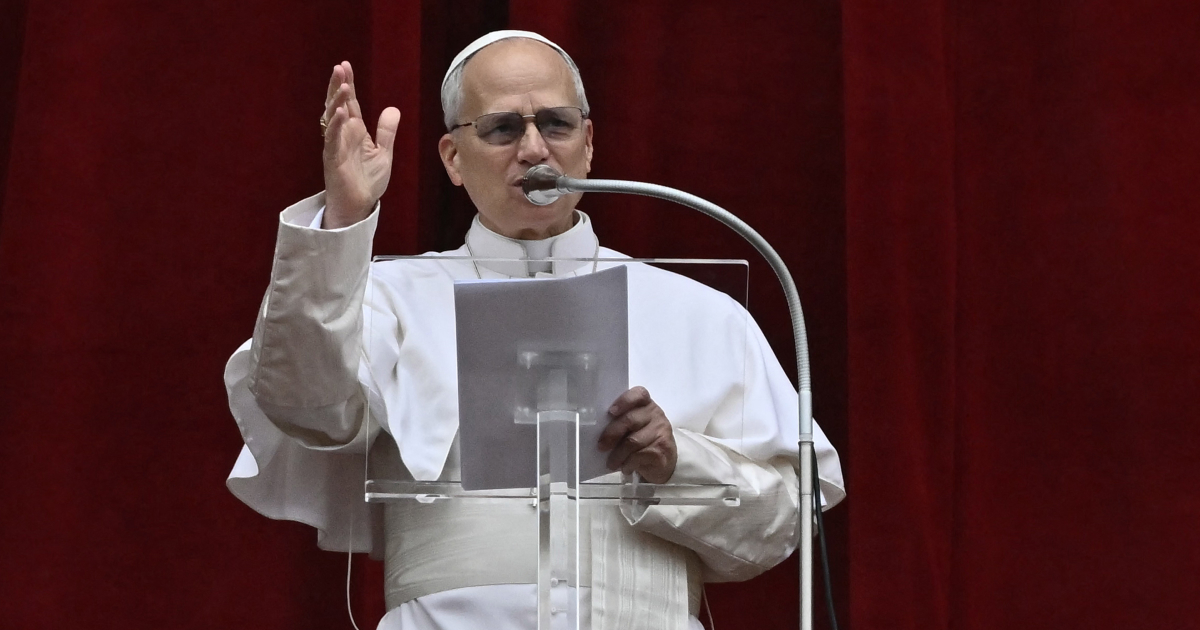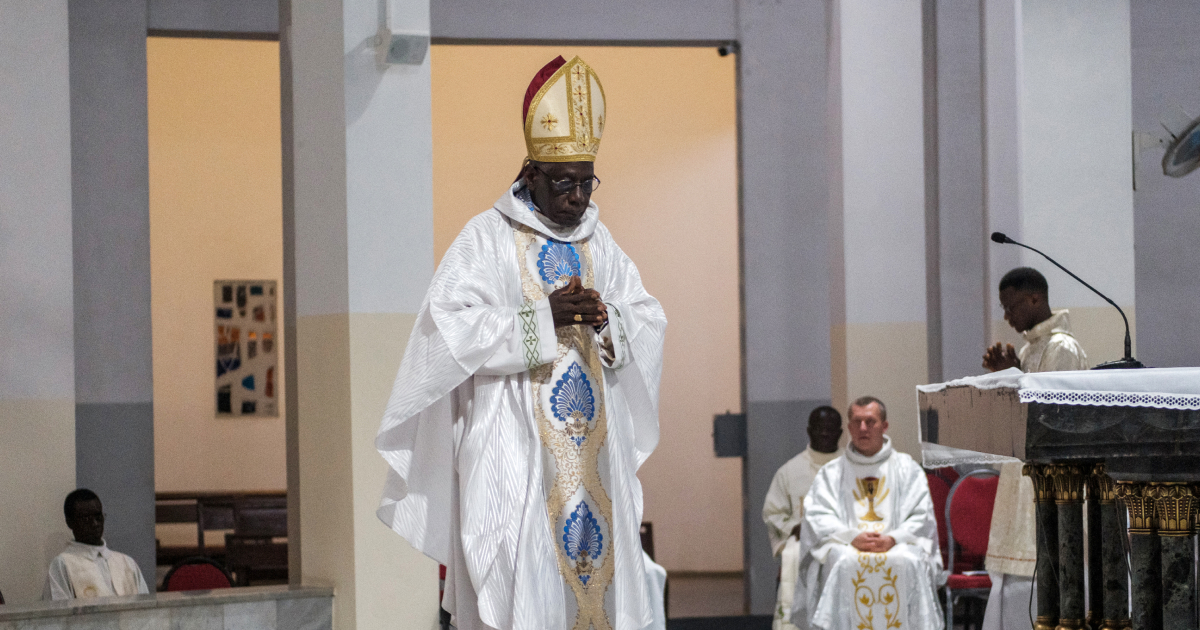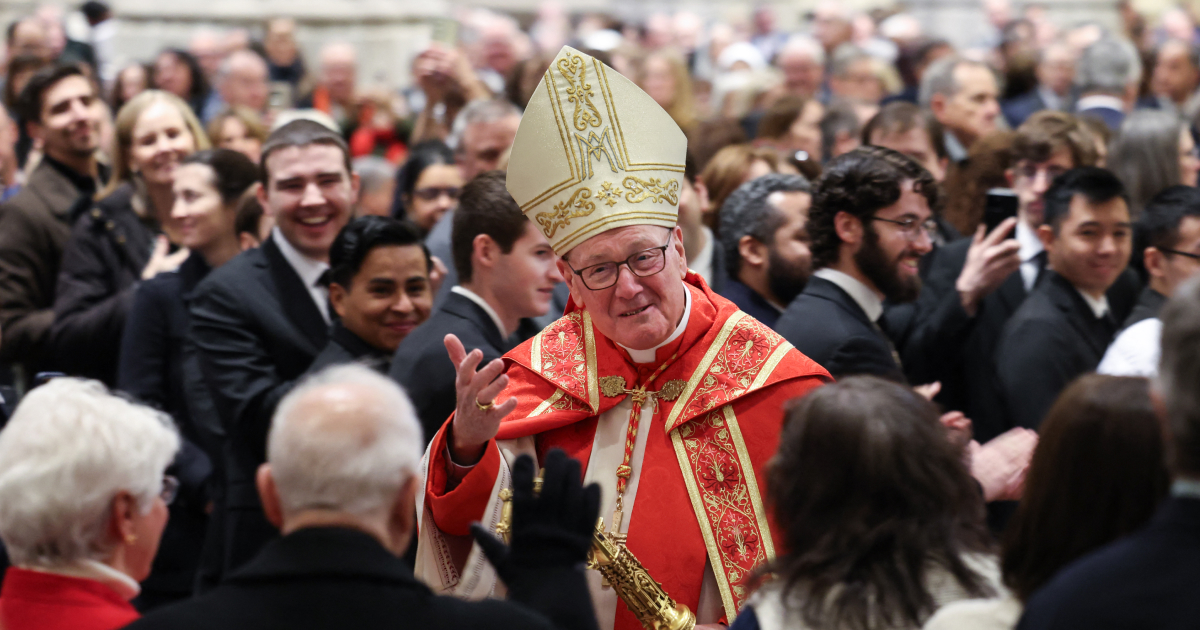The case of Lucy Connolly has caused widespread alarm and comment. Yesterday her appeal was refused and the response has been public outrage – to an extent.
The facts of her case need little rehearsing. The 42-year-old mother was imprisoned for 31 months for making an intemperate Tweet.
The mass stabbing last summer at Southport tore at the fabric of our fragile social glue. The harsh, immediate and disproportionate punishments of protestors have raised more than the accusation of two-tier policing or two-tier justice.
We are moving slowly but surely deeper into some form of civil, societal and legal crisis. It is not possible to ignore it; it would be irresponsible to exacerbate it; so what response are we left with? We can only describe it and hope that in the description some form of corrective response can be found from within our democracy.
The Connolly case raises the most important series of complex issues all at the same time: the concept and legitimacy of the accusation of racism acting as the secular thought-crime replacing the Christian moral precept of loving your neighbour; the Islamification of society by stealth; the loss of the practice of blind justice so honoured for over a thousand years in our island's Christian history; the loss of neutrality of the police and judiciary; the loss of the status of all citizens being equal before the Law; the threat to freedom of speech, thought and conscience.
It is difficult to know how to rank these in importance or urgency. The claims made by Lucy Connolly’s many supporters are that the judiciary has been captured by the executive and, by imposing the will of the government, is acting in the form of a police state.
The evidence behind that claim is that the sentencing of Lucy Connolly is so disproportionate within the context of sentencing, and so offensive to the public judgement, that this must represent some form of coercive policy by the executive pour encourager les autres.
The most obvious case to look at, in comparison, to substantiate that charge, is that of the alleged actions of Ricky Jones.
He was a Labour councillor who was caught on video appearing to tell a crowd that “We need to cut their throats and get rid of them" (the “their” appeared to refer to white protesters). In stark contrast to Lucy Connolly, Jones got bail and won’t stand trial till the end of the summer, a whole year since his alleged offence.
Toby Young, the general secretary of the Free Speech Union, looks instead, by way of contrast to highlight the disproportion and injustice, to the immigrant grooming gangs: "How can it be right for Lucy to have been condemned to spend more than two-and-a-half years in jail for a single tweet when members of grooming gangs who plead guilty to the sexual exploitation of children get lower sentences?"
He adds: "Lucy should be at home with her daughter and husband, not rotting in jail … No one disputes the Tweet was offensive but the sentence of more than two-and-a-half years was plainly disproportionate."
Rupert Lowe, the former Reform MP now sitting as an Independent, added his voice to the protests. “It is morally repugnant to separate a mother from her children over one stupid social media post.”
He continued his protest in writing to Justice Secretary Shabana Mahmood, raising the ever important issue of the social justification for imprisonment as a sentence. "Who is being served by having Lucy Connolly in prison? It is definitely not the public, who I believe would feel far safer if a violent criminal was incarcerated in that cell."
The former Prime Minister Boris Johnson warned that the country is "losing its reputation for free speech" as a growing number of online rants draw the attention of police. Mr Johnson excoriated the "crazy and inhuman judgment", warning: "Starmer's Britain is losing its reputation for free speech and turning into a police state, where we must all learn to fear the knock on the door simply for something we say ... the UK police are now making over 10,000 arrests every year for online comment, more than the police in Russia itself, and this judgment is yet another propaganda gift for Vladimir Putin."
When a former prime minister warns that our country is in the process of turning into a police state, it would be foolish to turn our heads and continue to look the other way.
Catholics above all should have tender consciences about the eradication of justice from the body politic. There is an oddity in that for the last half a century, Catholic voices have been swift to raise their concerns for regimes in the Third World where corruption within the State has deprived citizens of access to justice, but as yet, there is no equivalent conscientious objection to the sudden curtailing of justice in our own body politic.
The Catholic tradition is only too clear about the duties of the Catholic to resist the corrupt State.
While Aquinas does not advocate for rebellion, he allows for resistance in extreme cases. If the State becomes tyrannical – consistently denying justice and acting contrary to the common good – it loses its claim to legitimate authority. In De Regno (On Kingship), he argues that a tyrant who rules for personal gain rather than justice may be resisted, ideally through peaceful or institutional means.
For Aquinas, natural law (the rational understanding of right and wrong) is above human law. If a State’s actions contradict natural law, then citizens have a moral basis to object, and are not strictly bound to obey unjust commands.
Where are the Catholic voices being raised to hold the State accountable for it’s dereliction of moral duty, especially in regard to Lucy Connolly?
The quiescence of the Catholic community in our country is highlighted even more starkly by the protests of the US Vice-President, JD Vance, who was unafraid to warn of trade sanctions from the US if any any of the European states were to continue their soft totalitarian experiments inhabiting the territory of risking becoming police states at the expense of the legitimate human rights of their citizens.
Nor is this simply a matter of the private Catholic conscience. Eminent academic voices like Professor David Betz from King’s College London have warned that civil war is imminent in our society, and indeed, the process of its initiation can be argued to have already progressed through the early stages of development, bringing us closer to the outbreak of civic and political violence.
At the very least, the Catholic conscience in our community should be expressing its alarm at the severity of the the crisis of civic and human rights in the form of the denial of basic justice, as exemplified in the disparity of sentencing by the courts.
If we are unwilling to be stirred into action by the suffering of a mother immorally and unjustly separated from her vulnerable child – and her suffering husband, who is also reported to be enduring a serious illness – by the aspirations of an increasingly ambitious police states, what will it take to awaken it?
Photo: Lucy Connolly (screenshot from freespeechunion.org).
The case of Lucy Connolly has caused widespread alarm and comment. Yesterday her appeal was refused and the response has been public outrage – to an extent.
The facts of her case need little rehearsing. The 42-year-old mother was imprisoned for 31 months for making an intemperate Tweet.
The mass stabbing last summer at Southport tore at the fabric of our fragile social glue. The harsh, immediate and disproportionate punishments of protestors have raised more than the accusation of two-tier policing or two-tier justice.
We are moving slowly but surely deeper into some form of civil, societal and legal crisis. It is not possible to ignore it; it would be irresponsible to exacerbate it; so what response are we left with? We can only describe it and hope that in the description some form of corrective response can be found from within our democracy.
The Connolly case raises the most important series of complex issues all at the same time: the concept and legitimacy of the accusation of racism acting as the secular thought-crime replacing the Christian moral precept of loving your neighbour; the Islamification of society by stealth; the loss of the practice of blind justice so honoured for over a thousand years in our island's Christian history; the loss of neutrality of the police and judiciary; the loss of the status of all citizens being equal before the Law; the threat to freedom of speech, thought and conscience.
It is difficult to know how to rank these in importance or urgency. The claims made by Lucy Connolly’s many supporters are that the judiciary has been captured by the executive and, by imposing the will of the government, is acting in the form of a police state.
The evidence behind that claim is that the sentencing of Lucy Connolly is so disproportionate within the context of sentencing, and so offensive to the public judgement, that this must represent some form of coercive policy by the executive <em>pour encourager les autre</em>s.
The most obvious case to look at, in comparison, to substantiate that charge, is that of the alleged actions of Ricky Jones.
He was a Labour councillor who was caught on video appearing to tell a crowd that “We need to cut their throats and get rid of them" (the “their” appeared to refer to white protesters). In stark contrast to Lucy Connolly, Jones got bail and won’t stand trial till the end of the summer, a whole year since his alleged offence.
Toby Young, the general secretary of the <a href="https://freespeechunion.org/lucy-connollys-appeal-has-been-denied/"><mark style="background-color:rgba(0, 0, 0, 0)" class="has-inline-color has-vivid-cyan-blue-color">Free Speech Union</mark></a>, looks instead, by way of contrast to highlight the disproportion and injustice, to the immigrant grooming gangs: "How can it be right for Lucy to have been condemned to spend more than two-and-a-half years in jail for a single tweet when members of grooming gangs who plead guilty to the sexual exploitation of children get lower sentences?"
He adds: "Lucy should be at home with her daughter and husband, not rotting in jail … No one disputes the Tweet was offensive but the sentence of more than two-and-a-half years was plainly disproportionate."
Rupert Lowe, the former Reform MP now sitting as an Independent, added his voice to the protests. “It is morally repugnant to separate a mother from her children over one stupid social media post.”
He continued his protest in writing to Justice Secretary Shabana Mahmood, raising the ever important issue of the social justification for imprisonment as a sentence. "Who is being served by having Lucy Connolly in prison? It is definitely not the public, who I believe would feel far safer if a violent criminal was incarcerated in that cell."
The former Prime Minister Boris Johnson warned that the country is "losing its reputation for free speech" as a growing number of online rants draw the attention of police. Mr Johnson excoriated the "crazy and inhuman judgment", warning: "Starmer's Britain is losing its reputation for free speech and turning into a police state, where we must all learn to fear the knock on the door simply for something we say ... the UK police are now making over 10,000 arrests every year for online comment, more than the police in Russia itself, and this judgment is yet another propaganda gift for Vladimir Putin."
When a former prime minister warns that our country is in the process of turning into a police state, it would be foolish to turn our heads and continue to look the other way.
Catholics above all should have tender consciences about the eradication of justice from the body politic. There is an oddity in that for the last half a century, Catholic voices have been swift to raise their concerns for regimes in the Third World where corruption within the State has deprived citizens of access to justice, but as yet, there is no equivalent conscientious objection to the sudden curtailing of justice in our own body politic.
The Catholic tradition is only too clear about the duties of the Catholic to resist the corrupt State.
While Aquinas does not advocate for rebellion, he allows for resistance in extreme cases. If the State becomes tyrannical – consistently denying justice and acting contrary to the common good – it loses its claim to legitimate authority. In <em>De Regno</em> (On Kingship), he argues that a tyrant who rules for personal gain rather than justice may be resisted, ideally through peaceful or institutional means.
For Aquinas, natural law (the rational understanding of right and wrong) is above human law. If a State’s actions contradict natural law, then citizens have a moral basis to object, and are not strictly bound to obey unjust commands.
Where are the Catholic voices being raised to hold the State accountable for it’s dereliction of moral duty, especially in regard to Lucy Connolly?
The quiescence of the Catholic community in our country is highlighted even more starkly by the protests of the US Vice-President, JD Vance, who was unafraid to warn of trade sanctions from the US if any any of the European states were to continue their soft totalitarian experiments inhabiting the territory of risking becoming police states at the expense of the legitimate human rights of their citizens.
Nor is this simply a matter of the private Catholic conscience. Eminent academic voices like Professor David Betz from King’s College London have warned that civil war is imminent in our society, and indeed, the process of its initiation can be argued to have already progressed through the early stages of development, bringing us closer to the outbreak of civic and political violence.
At the very least, the Catholic conscience in our community should be expressing its alarm at the severity of the the crisis of civic and human rights in the form of the denial of basic justice, as exemplified in the disparity of sentencing by the courts.
If we are unwilling to be stirred into action by the suffering of a mother immorally and unjustly separated from her vulnerable child – and her suffering husband, who is also reported to be enduring a serious illness – by the aspirations of an increasingly ambitious police states, what will it take to awaken it?
<em>Photo: Lucy Connolly (screenshot from freespeechunion.org). </em>









